Consortium
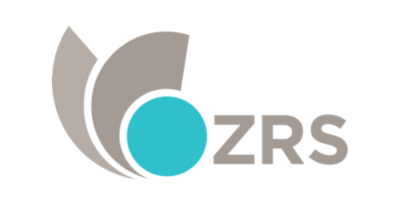
Science and Research Centre Koper (ZRS Koper), Slovenia
Team Members:
Uroš Marušič (leader),
Ana Šajn
The Science and Research centre (ZRS Koper) is an independent public research institution founded by the Government of the Republic of Slovenia (>115 employees). Over the 29 years, it became one of the leading Slovenian research institutions with a wide-spanning network of international cooperations. Interdisciplinary research lies at the heart of the Centre’s activities, while they also encompass preparation of expert studies and counseling, education, organization of scientific and professional meetings, publishing, and librarianship. The ZRS Koper consists of 10 research Institutes and a Centre for project management which provides indispensable support for research activities throughout a project as well as strategic targeting of the future grants. ZRS Koper has substantial experience in managing as well as cooperating on a range of European research projects, including Horizon 2020, Framework programmes, ERC, Territorial cooperation programmes etc. Researchers are also actively involved in the education process at Slovenian and international universities, thus ensuring the transfer of their know-how into the educational sphere. The Institute for Kinesiology Research is involved in applied research of human movement investigated through the lens of the interdisciplinary approach and is the leader of this project application. Our teams typically consist of a tight collaboration between a kinesiologist, human movement scientist, biomedical engineer, neuroscientist, psychologist, sociologist, and dietitian. The intersection between human physical activity and lifestyles of both healthy and clinical populations is assessed throughout the life span while using the state-of-the-art technology, such as immersive virtual reality (VR) and fully mobile electroencephalography (EEG). In addition to aging, we take special interests in patient rehabilitation, peak performance and athleticism, and space physiology. Communication and dissemination activities of the acquired knowledge encompass organizing scientific, expert and specialty meetings, publishing articles in Q1 (top rated) peer-reviewed scientific journals, presenting commercial products for athletes and companies, lecturing to Kinesiology and Physiotherapy study programmes. Researchers from ZRS Koper are experienced in translating research findings into recommendations for healthcare and eldercare professionals internationally and have a track record of developing policy recommendations for decision-makers at various levels. However, we feel that the full potential of such “science to practice translation” has not been reached yet. In general, ZRS Koper continues to experience an underwhelming level of collaboration with the industry, hence the institution will importantly benefit from this particular project both at the level of competencies of staff, as well as institutionally.
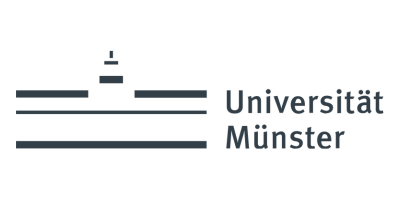
University of Muenster (UM), Germany
Team Members:
Claudia Voelcker-Rehage, Julian Rudisch
With more than 45,700 students, the University of Muenster (WWU) is one of the largest universities in Germany. Thanks to its extensive range of degree programmes, multifaceted research profile, and the atmosphere and quality of life in Münster, the University attracts students and researchers from Germany and around the world. The WWU is committed to providing its early career scientists with excellent research opportunities, high quality teaching and strong support. It has a unique infrastructure with state-of-the-art laboratories and support staff who manage data servers and provide excellent data stewardship. WWU also offers a wide network of communities of interest, including nursing homes, clinics, and rehabilitation centers (non-academic high-tech and medical facilities).
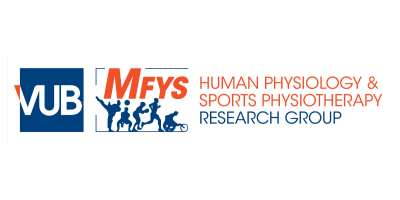
Vrije Universiteit Brussel (VUB), Belgium
Team Members:
Bart Roelands, Kevin De Pauw
Vrije Universiteit Brussel (VUB) is a competitive, high-quality, socially committed and internationally oriented university located in Brussels, Belgium. It counts 4 campuses in Brussels, 8 faculties and 193 research groups around 9 strategic research clusters: 1) big data, 2) brain & behaviour, 3) city dynamics, 4) environmental issues, 5) fighting
diseases, 6) small particles, 7) smart engineering, 8) societal challenges, and 9) the circle of life. In 2018, VUB ranked #47 in Reuters’ Most Innovative Universities Top 100 in Europe, it has 127 active patent families and disclosed 40 inventions. VUB accommodates 3 doctoral schools (Human Sciences, Natural Sciences and (Bioscience) Engineering, and Life Sciences and Medicine) that cater to the needs of its more than 1,600 PhD students (2017: 1,677). Additionally, the university provides high-quality education in all academic fields to more than 16,000 BA and MA students (2017: 16,094). In particular, the Brussels Human Robotics Research Center, (www.BruBotics.eu, Talent10 acts as vice-president), is a joint initiative of 8 research groups of the Vrije Universiteit Brussel (VUB) sharing a common vision: improve the quality of life through Human Robotics. By combining expertise from over 120 researchers in engineering, life sciences, computer sciences and social sciences on the topic of Human Centered Robotics, BruBotics is able to work on topics such as exoskeletons, bionic prostheses, robotic rehabilitation, collaborative robots, AR/VR/E-Health, social robots, artificial intelligence and many more. Currently, the BruBotics research groups are engaged in over 25 industrial research contracts, over 37 basic and applied regional research projects and 24 European research projects. BruBotics employs two full time business developers to ensure successful valorization of the research results. A close academic-industry link can be observed through several spin-offs 12 already established from the VUB.
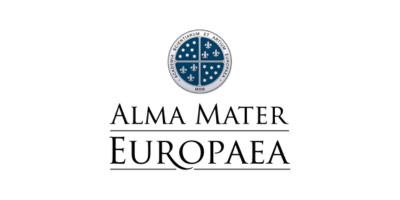
Alma Mater Europaea - ECM (AMEU), Slovenia
Team Members:
Polonca Pangrčič, Anja Inkret
The European Academy of Sciences and Arts, a society of some 2000 prominent scholars, including 32 Nobel laureates, initiated the Alma Mater Europaea international university in 2000. Alma Mater Europaea – European Centre, Maribor (AMEU), Alma Mater’s entity in Slovenia, is a young and dynamic higher education institution established in 2007. Under the European Academy of Science and Arts patronage, Alma Mater strives to create a new international leadership elite in education, health, ecology, business, humanities, and intercultural communication, dedicated to Central Europe and the Danube region. Alma Mater offers 23 fully accredited doctoral, master, and bachelor’s degree studies in humanities, ecology, business, European studies and project management, archival studies, social studies, healthcare, nursing, physical therapy, artificial intelligence, dance studies, and social gerontology. Since 2015, the Dance Academy, the only Slovenian-accredited institution offering diplomas in ballet and dance studies, has been part of the Alma Mater. Alma Mater cooperates with many clinical bases in Slovenia, Italy, Austria, and Croatia, where students receive professional training. Alma Mater has a network of 40 academic, research and civil society institutions from 12 EU and non-EU countries. Several academics and specialists from the economic sector work with Alma Mater (comprising over 1.400 experts in political sciences, social and natural sciences, economy, universities, faculties, enterprises, research institutes, development centres and other economic entities). AMEU University developed several research areas in which fundamental knowledge is put into practice. For example, students (from all three Bologna programs) of Physical Therapy, Social Gerontology, and Health and Nursing are offered and motivated to contribute to the practical courses that are conducted in various health care facilities such as nursing homes and rehabilitation clinics. In addition, there is a lively connection with national and international associations that works both ways: from science to practice and from knowledge gained in practice back to the classroom. Due to the large amount of highly motivated students from different profiles, we aim at enhancing collaborations between academia and industry, as well as to boost potential of our professors and researchers. With collaboration in this project, we aim at enhancing our options to increase employability and sustainable career prospects of diverse talents within academia.
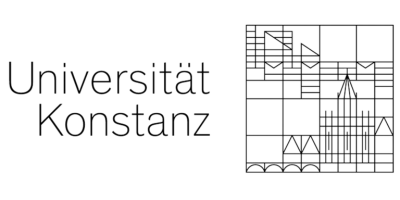
University of Konstanz (UKON), Germany
Team Members:
Michael Schwenk, Markus Gruber
University of Konstanz (UKON) was founded in 1966 and is one of only six universities in Germany that were successful in all three funding lines of the Excellence Strategy/Initiative of the German Federal and State Governments. It promotes diversity, communication, integration, and the career prospects of young researchers. UKON provides flexible structures as basis for international top-level research. While it is one of the smaller German universities with c. 10,980 students and 219 professors, UKON is the number one German university for attracting third-party funding per capita of all academic staff. It has established close links with non-academic partner institutions and supports the transfer of knowledge from “science to practice” with its infrastructure and activities.

BrainTrip (BT),
Malta
Team Members:
Igor Dreo, Jurij Dreo
BrainTrip (BT) is a company specializing in translational neuroscience. Their expertise is in taking cutting-edge findings in neuroscience and converting them into functional medical devices. BrainTrip’s flagship product is the first practical and scalable screening test for early dementia detection, based on non-invasive electrophysiological biomarkers of neurodegeneration. What is the BT’s solution? BT’s solution is an AI-optimized EEG-based biomarker which can detect dementia in its early stages and be used to measure its progression. Traditional naked eye inspected EEG has been of little use in dementia because EEG changes are often only evident late in the illness when other clinical signs are obvious. BT has developed an algorithm that can detect these changes early on, before cardinal symptoms become evident. The brain’s electrical activity contains many hidden biomarkers that can be extracted by combining neuroscientific knowledge and complex mathematical models. Our BDI biomarker for dementia is based on such models. BT’s solution is based on a 15-minute EEG test with an accuracy of 84% and can be used by minimally trained staff at any facility. This solution has been certified as a Class I Medical Device in the EU. BT fully support the activities of this project and will strive to improve our systems while openly sharing best practices. Partner is using an actual cost for direct personal costs.

Subsequent (SQ), Germany
Team Members:
Manuel Stein, Daniel Seebacher
Subsequent GmbH (SQ) from Konstanz, Germany, is a pioneer in the development of highly accurate, real-time optical tracking systems based on markerless pose (skeleton) detection and visual-interactive motion analysis in various application areas. The extensive experience of Subsequent in implementing novel methods for data extraction, pattern recognition, and contextual motion analysis provides users with high-quality, cost-effective solutions to improve their understanding of motion patterns. The non-invasive solutions of Subsequent do not require complex multi-camera infrastructures. Customers of Subsequent consist of sports clubs from the top European (football) leagues as well as clinics, research institutes and companies from the fields of home fitness and forensics.
Since 2022, Subsequent is, for example, the official new data provider for the Austrian football national team. In November 2022, Subsequent was awarded the Innovation Award of Baden-Württemberg as one of the most innovative companies statewide. In the BMBF-funded project SMARTGAIT (volume 0.4 Million EUR), Subsequent as well as the University of Konstanz collaborate in order to develop a system that supports medical staff in the gait analysis of people with neurological diseases. Using novel AI-methods from Subsequent, data is collected through simple smartphone video recordings while relevant gait parameters can be visualized through interactive motion analysis (motion fingerprinting). This enables fast and individualized feedback for patients while medical professionals can, furthermore, compare rehabilitation progress with each other. By combining innovative technologies, SMARTGAIT minimizes time-consuming and cost-intensive work steps and makes valid gait analyses widely available for the first time. Partner is using an actual cost for direct personal costs.

TMG-BMC (TMG), Slovenia
Team Members:
Jure Jemec
TMG-BMC Ltd. (TMG) is a highly innovative company (SME) working on novel approaches to detect skeletal muscle contractile properties that could not be assessed with other methods, such as non-invasive detections of skeletal muscle composition of muscle fibre phenotypes. It is a spin-off company from the University of Ljubljana, Faculty of electrical engineering. They obtained several international patents for their methods (e.g., Patents for Tensiomyography (TMG) and Muscle contraction (MC) methods). Those methods (TMG and MC) will be used in the proposed project. As well as a novel portable TMG sensor (patent pending). Since TMG is already a widely accepted and applied method in various fields with over 250 scientific publications in peer reviewed journals (space physiology – microgravity, aging, sport, rehabilitation), the MC and portable TMG are not. However, the potential of both methods are enormous, as MC is allowing assessment of muscle contractile properties in dynamic contractions and portable TMG allows quick assessment in various environments, where non-portable devices are not possible to apply. The TMG company has an innovative data acquisition and management system that was built in-house. Partner is using an actual cost for direct personal costs.

Willibald Gebhardt Institute (WGI), Germany
Team Members:
Sebastian Brueckner
Willibald Gebhardt Institute (WGI), is an International Institute of Research and Knowledge Transfer in the fields of Sport and Sport Sciences. Established as a non-governmental and non-profit institution in 1992 to support human tasks and social targets of physical activities including health-related fitness and ethical-morale principles in sport activities. The WGI is listed as an Olympic Study Centre with a focus on Olympic education by the IOC since the year 2011. Furthermore, the WGI is affiliated with the Univ. of Münster by contract (2018) as a so-called “Affiliated Research Institute”. WGI employs a part-time administrative staff (executive manager) since 2017 and multiple contracted staff members throughout its respective funded projects. Its board members all hold staff positions (Professorships, Academic Permanent Staff) at the University of Muenster, adding to the depth of human, facility and technological resources available. The WGI has been strongly involved in a variety of EU funded projects since 2004. WGI received two grants for commissioned work by EACAE and recently by the EP (2020). WGI has developed an effective plan that promotes research, consultation, communication, and collaboration with industry partners and public life commissioners, government agencies, and sports and medical associations. Such knowledge transfer will serve for effective reintegration of talents and institutional reforms that will follow.


